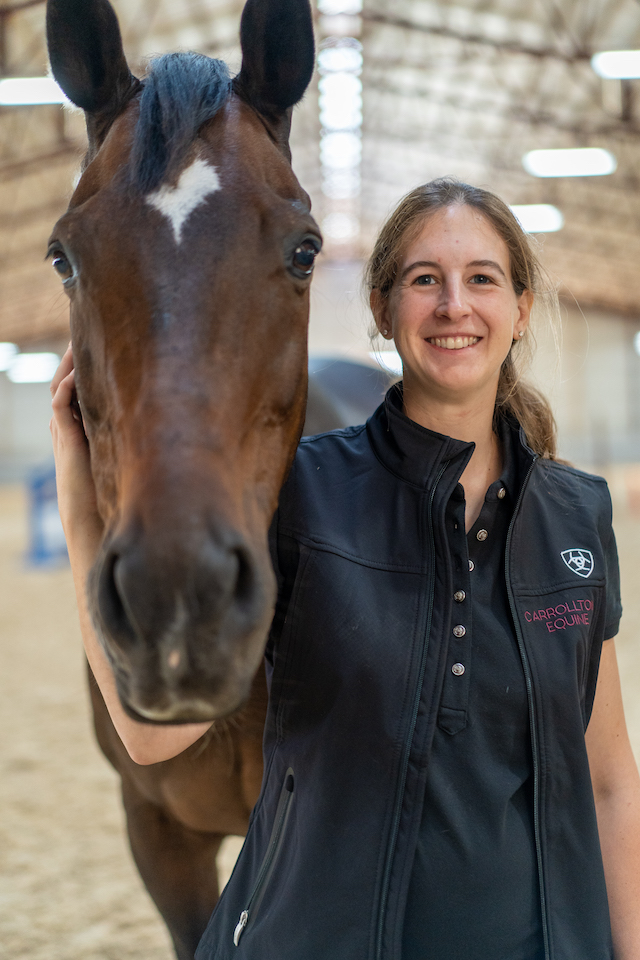Hot Weather Horse Care: Tips to Keep Your Horse Safe and Healthy
When the summer sun is blazing, it's important to take extra precautions for your horse's health. This article covers everything you need to know about managing heat stress, from adjusting exercise schedules to providing essential minerals and electrolytes.
As we move into the hotter part of the year, we all need to be mindful of our own water intake and watch ourselves for heat stress. The same cautions must be taken with our animals under our care as well. Horses are equipped with a much larger body mass than we are giving them the advantage when it comes to staying warm in the winter time. Additionally, as they process their food it often acts like a furnace in their hindgut producing even more warmth. Horses are equipped with sweat glands similar to us giving them the ability to exercise safely in hot weather, but they will incur heat stress sooner than humans will due to their anatomy. The following are some good tips to try to help beat the heat this summer and keep our horses at their best.
- Watch the heat index. At competitions or physical training schedules at home it is important to keep an eye on the heat index which is a good measure of how well your animal is going to be able to keep themselves cool. Use this update from US Equestrian to evaluate if its too hot for your horse today: https://www.usef.org/media/press-releases/us-equestrian-competition-update-heat-index
If the heat index is too high when you typically exercise your horse, try to rearrange your day so that you can work your horse early morning or evening when the heat index is not as severe. - Provide fresh water at all times. We don’t often think about our horses overheating out in the field, but it can easily happen quite quickly if they run out of fresh water to drink. An average horse will normally drink 10-15 gallons of water daily as maintenance when it is not particularly hot outside. If they are sweating to keep cool, they should be drinking more than that.
- Provide access to a salt/mineral block at all times. When horses sweat, they lose many minerals and proteins through their pores similar to humans. The difference is that horses will lose more proteins when sweating than people which is why their sweat foams as it accumulates. Large trace mineral/salt blocks are available to purchase at many feed stores and can be placed in a stall or run-in shed to protect it from the weather.
- Electrolyte supplementation. If you horse is going to be working regularly in hot weather, we recommend supplementing with an electrolyte to make sure they stay replenished while working. Similarly to an athlete drinking a Gatorade as opposed to water while exercising. Electrolytes can be mixed into a horse’s water or given as a paste prior to working. If mixing it with water make sure there is at least one water source available for the horse to choose that does not include an electrolyte.
- Quickly Cool After Exertion. When you are competing or exercising in hot, humid weather it is important to assist your animal with cooling. Cold hosing or sponging with cold water will assist in quickly bringing your animals internal temperature back down to normal. The best areas to focus on are the neck, chest, belly, and in-between hind legs to get maximum cooling capabilities. Placing cold water over the back of the animal is not very effective at cooling due to the animal’s natural insulation over those areas with large blood vessels hidden beneath the surface.
Summer time is a great time to get outside with long days and beautiful skies. While we’re soaking up the sun it is important to remember our athletic companions and make sure they’re enjoying the day as much as we are. If you are concerned at all that your horse may be experiencing heat stress or have any other concerns, don’t hesitate to give us a call.

About The Author
Nicole Kelleher
DVM, CVA, VSMT | Owner & Equine Veterinarian
Nicole graduated from The Ohio State University College of Veterinary Medicine in 2014. Since then she has continued to further her education by becoming a Certified Veterinary Acupuncturist graduating from the Chi Institute in 2017. She then attended the Healing Oasis school to graduate with her degree in Veterinary Spinal Manipulative Therapy (VSMT) in 2021. Dr. Kelleher regularly sees clients utilizing Shenanigans Stables to perform lameness evaluations and treat patients with both acupuncture and VSMT allowing for an integrative approach to the equine athlete.
